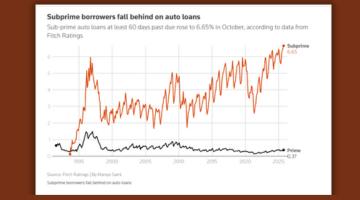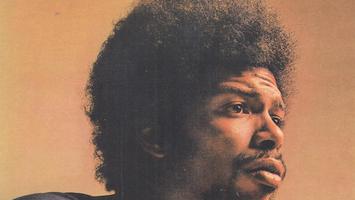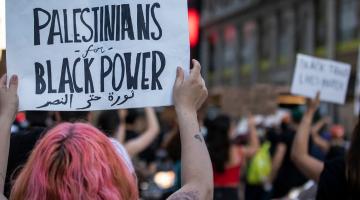The assassination of a far-right demagogue raises the question: when does 'free speech' become a tool for inciting violence? Nations like South Africa and Brazil have decided that some speech is not protected.
A public service announcement that aired in South Africa 26 years ago was all the buzz, dominating editorial pages, talk-radio and barroom conversations across the country. Coming five years after the end of apartheid, the minimalist, 30-second spot starred the country’s most glamorous Hollywood actress staring into the camera and questioning her countrymen's manhood.
“Hi, I'm Charlize Theron. People often ask me what men are like in South Africa. Well, consider that more women are raped in South Africa than any other country in the world. That one of out of three women will be raped in their lifetime in South Africa. And perhaps worst of all, that the rest of the men in South Africa seem to think that rape isn't their problem. It's not that easy to say what the men in South Africa are like. Because there seem to be so few of them out there.”
When an organization known as “n Groep Beswaarde Manne”--Afrikaans for 28 men and one woman--took offense, it complained to the government agency responsible for protecting the public from ads that are dishonest or prejudicial. After reviewing the complaint, the Advertising Standards Authority would go on to ban the ad, saying that it did indeed discriminate against men by suggesting that all condone rape.
While the agency’s rationale was absurd--emblematic of a Black-majority government that bent over backwards to appease their former oppressors—the debate itself underscores the yawning chasm between the United States’ chattering class that defends as inviolable the principle of free speech and a wide range of liberal democracies such as South Africa’s that maintains that some speech is not worth protecting.
The assassination a week ago today of the right-wing activist and social media figure, Charlie Kirk, has deepened the nation’s political fissures, with African Americans, women, and Palestinian supporters condemning him as a demagogue, white supremacist, misogynist and Zionist who said at varying times:
“MLK was awful. He’s not a good person;”
If I see a Black pilot, I’m going to be like, boy, I hope he’s qualified;
“Happening all the time in urban America, prowling Blacks go around for fun to go target white people, that’s a fact. It’s happening more and more.”
Both conservatives and white liberals, on the other hand, defend Kirk’s ministry on free speech grounds. In his column dated September 11, New York Times columnist Ezra Klein wrote:
You can dislike much of what Kirk believed and the following statement is still true: Kirk was practicing politics in exactly the right way. He was showing up to campuses and talking with anyone who would talk to him. He was one of the era’s most effective practitioners of persuasion. When the left thought its hold on the hearts and minds of college students was nearly absolute, Kirk showed up again and again to break it. Slowly, then all at once, he did. College-age voters shifted sharply right in the 2024 election.”
Klein’s column is remarkable for what it omits, which is the entire 20th century, and the role that language played as the sine qua non of the worst expressions of racial violence to include South Africa’s white-minority rule that was set in motion when Afrikaners returned home from World War II to find Blacks, or kaffirs, had taken their good-paying factory jobs. Similarly, Nazi propaganda that dehumanized Jews as Untermensch or subhuman, “parasites” “vermin,” and “degenerate” ginned up anti-Semitic sentiment that undergirded the Holocaust. And in the most recent genocide, Israeli political, military and religious leaders have described Palestinians as “a cancer,” and “vermin”, and called for them to be “annihilated.”
In a letter to the Times, Jed Forman, an assistant professor in Buddhist studies at Iowa’s Simpson College, wrote:
“Ezra Klein argues that Charlie Kirk did politics the right way, regardless of his views. Mr. Klein thus separates political practice from its content. That is both unwise and dangerous.
Mr. Kirk was critical of civil rights. He was against L.G.B.T.Q. rights. He consistently vilified marginalized people. What does it mean to attack these groups in the “right” way?
Forman’s letter is consonant with much of the world’s understanding of speech in binary rather than absolutist terms as embraced by Kirk’s defenders: it is great when it advances democratic discourse, not so much when it is kindling for racial or tribal massacres.
Passed in 2014, Brazil passed an “Internet Bill of Rights,” exemplifying a broader understanding of speech as both a boon and a burden to democracy.
A decade later, a Brazilian judge found that the country’s Trump-ian President, Jair Bolsonaro, had violated the legislation’s limitations on political speech after he lost the 2022 election toLuiz Inácio da Silva, widely known as Lula, by using the social media platform known as X to disseminate misinformation, recklessly allege widespread election fraud, and incite violence, culminating in the January 8, 2023, assault on the Brazilian Congress, Supreme Court and the presidential palace by Bolsonaro’s supporters, reminiscent of the U.S. Capitol riots two years earlier.
In 2024, the judge blocked access to X, the social media platform owned by Elon Musk after he refused to ban several profiles accused of spreading misinformation. Defending the social media posts on free speech grounds in much the same fashion that Ezra Klein and others are defending Kirk’s utterances, Musk initially defied the judge’s order for three months, but finally relented, paying nearly $5 million in fines and appointing a representative in the country to monitor offending accounts.
Earlier this month, the Brazilian Supreme Court sentenced Bolsonaro to 27 years in prison for plotting to violently overthrow Lula’s democratically elected government, consistent with the view held by a majority of Brazilians that some speech is too dangerous to allow.
Jon Jeter is a former foreign correspondent for the Washington Post. He is the author of Flat Broke in the Free Market: How Globalization Fleeced Working People and the co-author of A Day Late and a Dollar Short: Dark Days and Bright Nights in Obama's Postracial America. His work can be found on Patreon as well as Black Republic Media.


















